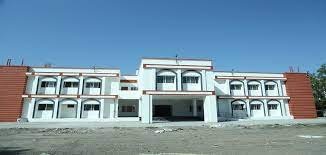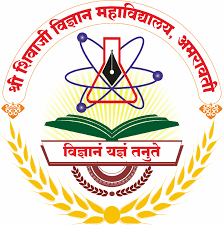Explore diverse career and job opportunities available to graduates of the Bachelor of Science (B.Sc.) in Environmental Science course. Be a part of the solution for a more sustainable future through a rewarding environmental science career.
Career & Job Opportunities for Bachelor of Science (B.Sc.) Environmental Science Course
A Bachelor of Science (B.Sc.) in Environmental Science is an interdisciplinary degree program that equips graduates with a deep understanding of environmental issues and the skills needed to address complex environmental challenges. This degree program combines elements of biology, chemistry, ecology, and policy to provide a comprehensive education in environmental science. In this guide, we will explore the diverse and rewarding career prospects available to individuals who have completed a B.Sc. in Environmental Science.
1. Environmental Scientist: Environmental scientists conduct research and fieldwork to study the environment and address issues such as pollution, climate change, and habitat conservation. They work for government agencies, environmental consulting firms, non-profit organizations, and research institutions. Environmental scientists play a critical role in understanding and mitigating environmental problems.
2. Environmental Consultant: Environmental consultants assess the environmental impact of human activities and provide recommendations for sustainable practices. They work in private consulting firms, government agencies, and research organizations. Environmental science graduates with expertise in environmental consulting contribute to projects related to environmental impact assessment, remediation, and compliance with environmental regulations.
3. Conservation Scientist: Conservation scientists work to protect and manage natural resources and ecosystems. They often focus on preserving biodiversity, managing wildlife populations, and restoring degraded habitats. Conservation scientists work for government agencies, conservation organizations, and research institutions.
4. Environmental Policy Analyst: Environmental policy analysts evaluate the impact of policies and regulations on the environment and society. They work in government agencies, non-profit organizations, and advocacy groups. Graduates with a B.Sc. in Environmental Science play a crucial role in shaping and evaluating environmental policies and advocating for sustainable practices.
5. Sustainability Specialist: Sustainability specialists promote sustainable practices within organizations and communities. They develop and implement strategies to reduce environmental impact, conserve resources, and promote social responsibility. Sustainability specialists work in various sectors, including corporations, local governments, and non-profit organizations.
6. Environmental Educator: Environmental educators teach people of all ages about environmental issues, conservation, and sustainable practices. They work in schools, nature centers, museums, and environmental education organizations. Environmental science graduates can inspire future generations to become environmentally conscious through education and outreach.
7. Water Quality Analyst: Water quality analysts monitor and assess the quality of water in rivers, lakes, and groundwater. They test water samples for contaminants and study aquatic ecosystems. Water quality analysts often work for government agencies, water treatment plants, and environmental consulting firms.
8. Air Quality Specialist: Air quality specialists study and monitor air pollutants, emissions, and their impact on human health and the environment. They work for government agencies, environmental consulting firms, and research organizations. Air quality specialists play a vital role in addressing air pollution and ensuring clean air for communities.
9. Renewable Energy Analyst: Renewable energy analysts evaluate and promote the use of renewable energy sources such as solar, wind, and hydropower. They assess the feasibility of renewable energy projects, analyze energy production data, and support the transition to clean energy solutions. Graduates in environmental science contribute to the growth of the renewable energy sector.
10. Environmental Health Specialist: Environmental health specialists focus on protecting public health by identifying and addressing environmental factors that can impact well-being. They work in public health agencies, hospitals, and environmental consulting firms. Environmental health specialists assess and manage health risks associated with environmental contaminants, such as lead, asbestos, and toxins.
 3 Years
3 Years
 Under Graduate
Under Graduate
 Science
Science
 Full Time
Full Time





















 back
back

